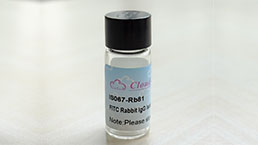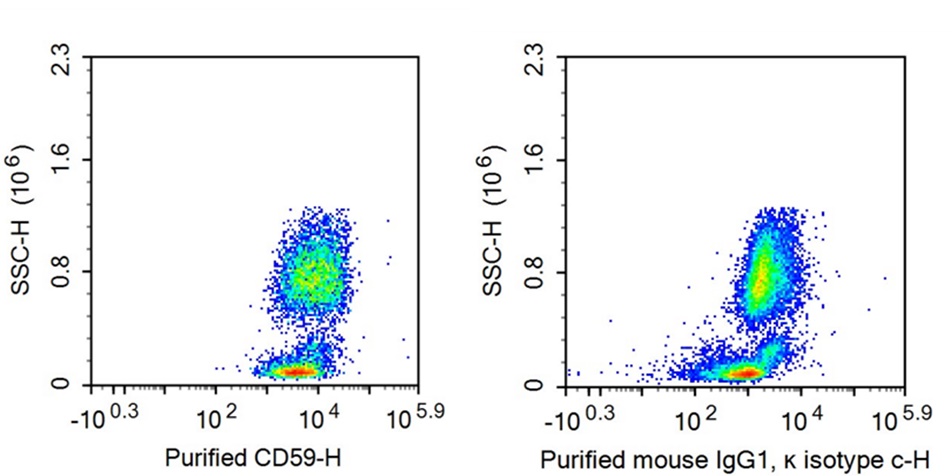Anti-Cluster of Differentiation 59 (CD59) Monoclonal Antibody 

Protectin; MIC11; MIN1; MIN2; MIN3; MSK21; MAC-IP; MACIF; MIRL; HRF20; Complement Regulatory Protein; 20 kDa homologous restriction factor; Membrane attack complex inhibition factor
- UOM
- FOB US$ 120.00 US$ 200.00 US$ 320.00 US$ 400.00 US$ 700.00
- Quantity
Overview
Properties
- Product No.FAB336Hu02
- Organism SpeciesHomo sapiens (Human) Same name, Different species.
- ApplicationsFCM
Research use only - Downloadn/a
- CategoryCD & Adhesion moleculeTumor immunityHematology
- Ig Isotype IgG1 Kappa, Clone Number D1
- PurificationProtein A + Protein G affinity chromatography
- LabelNone
- Excitation Laser
- Vol. per test
- Buffer Formulation0.01M PBS, pH7.4, containing 0.05% Proclin-300, 50% glycerol.
- TraitsLiquid
Share your citation
Upload your experimental result
Review
Leave a message
Loading...
Sign into your account
Share a new citation as an author
Upload your experimental result
Review
Please attach serial No. on instruction manual


Contact us
Please fill in the blank.
Name*
Organization
Address
E-mail address*
Telephone
Inquiry*
Verification code*

Usage
For flow cytometry, the suggested use of this reagent is 0.5-1 µg per 10^6 cells in 100 µl volume.
Optimal working dilutions must be determined by end user.
Storage
Store at 4°C for frequent use. Stored at -20°C in a manual defrost freezer for one year without detectable loss of activity. Avoid repeated freeze-thaw cycles.
Giveaways
Increment services
-
 Protein A/G Purification Column
Protein A/G Purification Column
-
 Positive Control for Antibody
Positive Control for Antibody
-
 Tissue/Sections Customized Service
Tissue/Sections Customized Service
-
 Phosphorylated Antibody Customized Service
Phosphorylated Antibody Customized Service
-
 Flow Cytometry (FCM) Experiment Service
Flow Cytometry (FCM) Experiment Service
-
 Immunoprecipitation (IP) Experiment Service
Immunoprecipitation (IP) Experiment Service
-
 Immunofluorescence (IF) Experiment Service
Immunofluorescence (IF) Experiment Service
-
 Buffer
Buffer
-
 DAB Chromogen Kit
DAB Chromogen Kit
-
 SABC Kit
SABC Kit
-
 Isotype Control
Isotype Control
-
 Real Time PCR Experimental Service
Real Time PCR Experimental Service
Citations
- Soluble CD59 is a Novel Biomarker for the Prediction of Obstructive Chronic Lung Allograft Dysfunction After Lung TransplantationPubmed:27215188
- Salivary levels of last generation specific pro©\resolving lipid mediators (SPMs)(protectin and maresin) in patients with cardiovascular and periodontal disease: A case ¡33650687






